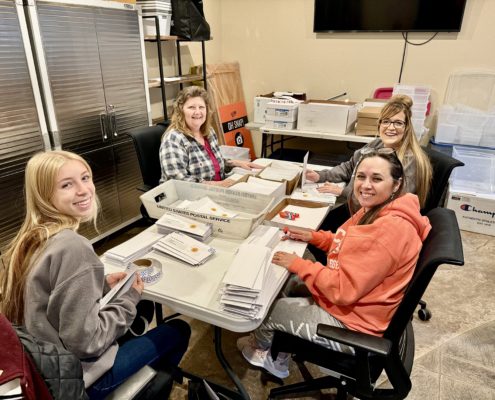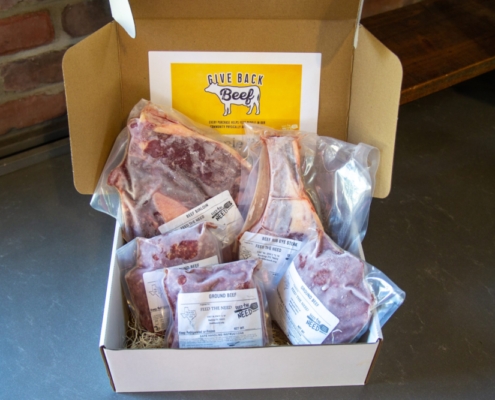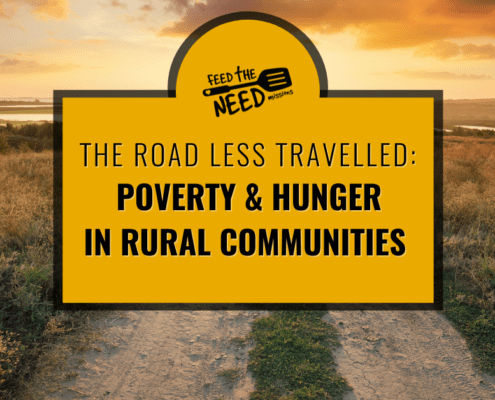PLANNED GIVING
“Do not store up for yourselves treasures on earth, where moth and rust destroy, and where thieves break in and steal. But store up for yourselves treasures in heaven, where neither moth nor rust destroys, and where thieves do not break in or steal;”
Matthew 6:19-20 NASB
Many people don’t think they have much of an estate. However, when they add up their home equity, retirement accounts and life insurance, they are surprised to discover they have a larger estate than they imagined. Planned giving enhances current and future income, results in tax savings, and leaves a godly legacy for the people and ministries you love. The resources provided here will help you.
Our team also stands ready to assist. Through prayer, wise counsel, and effective planning, you can help change lives. Below are several ways you can participate in planned giving.
Make a Will
Making a will allows you, as a godly steward, to make decisions for the benefit of your family and to follow the Lord’s leading with all He has entrusted to you. A will can leave a lasting legacy for those you love and want to inspire. It might be easier than you think.
What’s the biggest gift most people will ever make? It happens in a moment. We take our last breath on earth, and then all our earthly possessions are given away according to the plan we made. It’s not really correct to say, “I don’t have a will,” because the government already has one written for those who don’t write their own. For the person who follows Jesus, that final gift of all possessions can be anticipated with confidence.
Make An Appointment With An Attorney.
A qualified attorney is in the best position to know the laws of your state and to advise you on how best to accomplish what you want to do. Many estate plans can avoid or reduce unnecessary taxes on IRAs or other tax-deferred assets with a well-considered plan, especially if you include the Lord’s work in your plan. In some states, probate can be expensive and time-consuming, and a living trust can be a good idea. Generally, a trust also is a good idea if you own real property in more than one state. There are numerous factors to consider, and a wise attorney can be very helpful.
Sample Bequest Language.
Leaving a gift in your Will to a ministry that you love is a great expression of your Christian faith. If you would like to do this, consider including this language in your Estate Plans:
SAMPLE TEXT:
“I give _______ (% or dollar amount) of my estate to Feed the Need Missions of Bastrop, Texas for its general use.”
Do I need an Attorney to Make a Will?
There is no legal requirement that a Will be drawn up by an attorney. Some people use fill-in-the-blank legal documents, computer programs, or online Will services to take care of basic concerns such as leaving their property to loved ones and naming a guardian for young children. However, there are a number of situations where it would be highly recommended to work with an attorney instead of trying to do it yourself:
- If you have significant assets.
- If you have a special-needs, disabled, or dependent adult child.
- If you’ve been divorced or re-married.
- If you think one of your heirs might contest your Will.
- If you own a business.
- If you are concerned about guardianship issues for minor children.
- If you’re raising grandchildren or stepchildren.
- If you have questions about your Will or the Online form doesn’t address your situation.
Online Wills aren’t for everyone. In fact, even if you get an Online Will, we recommend that you consider having an attorney review it for accuracy and issues you may not have considered.
Including the Lord’s Work in Your Will.
Here are the most common ways to significantly increase your ministry impact through your Will:
- Add “Ministry” to your family. Some families treat ministry organizations like an additional child. For example, if a family has three children, they might add a fourth child named “Ministry” and divide the assets in their Will into four equal parts. Each of their children would receive 25%, and the remaining 25% would be divided among their favorite ministry organizations.
- Tithe on your Estate. Other families commit a 10% tithe of their estate to the ministry organizations they love, dividing the remaining 90% among their heirs.
- Leave the remainder. Others prayerfully decide how much is wise to leave their loved ones, designating the rest of their assets to advance the Lord’s work here and around the world.
- Update an existing Will. An attorney can add, delete, or change an item in your Will with an additional statement called a “codicil.”
SAMPLE TEXT:
- “I give, devise, and bequeath twenty-five percent (25%) of my residuary estate to [church or ministry name] whose address is [city, state, zip code].”
- Like a Will, a codicil must be dated, signed, and witnessed.
Charitable Gift Annuity
Did you know that you can donate to Feed the Need Missions, receive a tax deduction and enjoy a lifetime of income? Please ask your tax advisor how you can set up a Charitable Gift Annuity or Charitable Remainder Trust with Feed the Need Missions as the beneficiary.
Make a Stock Gift
Did you know appreciated stocks, mutual funds, and bonds in a taxable investment portfolio can be transferred as gifts to support Kingdom work? Giving stocks (that you have held for more than one year) directly to a ministry provides a significant opportunity to avoid capital gains tax, receive a deduction at the full-market value of the securities, and simplify your giving. In fact, giving appreciated stock can be more beneficial than giving cash!
If you have questions about giving stocks or mutual funds, or would prefer to arrange your gift over the phone, please contact us.
Give From Your IRA
Each year individuals who are 70 1/2 or older and have an IRA must take a Required Minimum Distribution (RMD). The RMD counts as income for the individual and is taxed accordingly.
The Pension Protection Act of 2006 began to allow qualified individuals to roll their RMD directly to a charity; for years this allowance had to be renewed by congress annually. However, on December 18, 2015 the President signed the PATH Act making this provision permanent.
While this may only affect a subset of your donors, it can make a big impact for them. The reduction of income will save them significant tax liability, and the rollover will allow them to make the impact they desire for your organization.
Here’s how it works:
- The donor is age 70½ or older on the day of the gift.
- Working with their adviser, the donor transfers up to $100,000 directly from the donor’s IRA to one or more qualified charities. This opportunity applies only to IRAs and not to other types of retirement plans.
- The donor does not receive any goods or services in return for the rollover gift in order to qualify for tax-free treatment.
- The gift needs to be made by Dec. 31, 2017, for the gift to qualify this year.
- The donor does not get a tax deduction, but avoids the income all together resulting in a net tax benefit.
Here is a great article with more details about giving from your IRA.
Asset-Based Giving
By making a gift of the right asset, or a portion of the asset, you can impact God’s Kingdom in a bigger way than you ever thought possible. With a plan in place you will put more of the value of the asset to work in God’s Kingdom, receive superior tax benefits, and even increase your cash flow in some cases.
Stock and Mutual Funds
Did you know appreciated stocks, mutual funds, and bonds in a taxable investment portfolio can be transferred as gifts to support Kingdom work? Giving stocks (that you have held for more than one year) directly to a ministry provides a significant opportunity to avoid capital gains tax, receive a deduction at the full-market value of the securities, and simplify your giving. In fact, giving appreciated stock can be more beneficial than giving cash!
If you have questions about giving stocks or mutual funds, or would prefer to arrange your gift over the phone, please contact us.
Real Estate
Properties that can be given to Feed the Need Missions include personal residences, vacation homes, commercial property or land. Many people like to give gifts of real estate because the inherent value of the property often exceeds that of any other single asset they own.
If you would like to donate real estate to Feed the Need Missions, please let us know your intentions first. Once we are aware of your plans for making this type of donation, we will want to make sure your goals can be realized within our gift acceptance policies. We will also need to inspect the property and perform other types of due diligence.
Life Insurance, Investment and Retirement Assets
Is it possible that you have not named a contingent or secondary beneficiary on your life insurance or not know whom you have named as your beneficiary?
You can name Feed the Need Missions as your primary or contingent (secondary) beneficiary on your investment accounts. Please consider reviewing your beneficiary information and designating Feed the Need Missions as your primary or contingent (secondary) beneficiary on your 401(k), 403(b), IRA, Annuities, or Life Insurance policy.
These assets require separate beneficiary forms. The beneficiaries of these assets can be easily modified at any time to meet your changing needs. For workplace accounts, you may be able to make your designation online or through your HR department. For private accounts, you can contact the investment company to request a beneficiary designation form.
Please use the following language:
“I designate Feed the Need Missions to receive the sum of [$ ______ or ____ % of my account/policy].”
Because most retirement plans are tax-deferred and therefore subject to income tax to your beneficiaries, retirement assets make ideal gifts to Feed the Need Missions. Naming Feed the Need Missions as the beneficiary of retirement assets upon death generates no income taxes. The benefit to Feed the Need Missions will be tremendous at your passing. Your legacy will be carried on far into the future!
Business Interest
Your business is likely the largest asset you own. As an entrepreneur it also represents your personal and often sacrificial investment to make it grow over the years. It has been the source of income and generosity but maybe the time to cash out is quickly approaching.
Putting the sale of your business into biblical stewardship terms, it is an asset that God has provided and entrusted to your care. Maximizing the results of the sale can both honor God and provide for your family.
The sale of a highly appreciated business is a tax-heavy event. In many cases, with the right exit strategy, a significant portion of those tax dollars can be converted to funds that will have eternal impact through the work of Feed the Need Missions. It is possible that the proceeds to you and your family will increase as well.
To discuss maximizing the sale of your business please call us.
Other Non-Traditional Assets
Non-Traditional Gifts are classified as anything other than cash or readily marketable securities. These gifts, while more complex than others, offer significant tax advantages and potentially greater charitable outcomes. Gifts of hard-to-value assets that have appreciated in value over the years can provide the giver with additional tax benefits not associated with gifts of liquid assets such as cash. These assets are generally subject to long-term capital gain with a tax rate of 20% if the owner disposes of the asset. However, when the appreciated asset is gifted to Feed the Need Missions, the capital gains tax is avoided. Also, the giver receives a charitable income tax deduction for the full value of the asset.
Liquid assets are comprised of cash, checks, savings accounts, certificates of deposit (CD), money market funds, Treasury bills and appreciated securities such as publicly traded stocks, bonds and mutual funds. Securities are valuable assets that can realize substantial capital gains as they appreciate in value. When deciding on gifting securities, consideration needs to be given to the original cost (cost basis) of the securities in relation to their present value (market value). The cost basis is the acquisition price, reduced by depreciation deductions and increased by improvements. When securities have increased in value, it is much more beneficial to a giver to transfer the securities to Feed the Need Missions rather than selling them. With careful planning, givers can reduce or avoid the capital gains tax while receiving a tax deduction for their charitable giving.
The information contained herein is for explanatory purposes only and is not intended to be used as tax advice. Feed the Need Missions recommends that you contact a professional tax advisor who can provide you with additional information on how your participation in the programs mentioned on this site may affect your personal tax situation.










